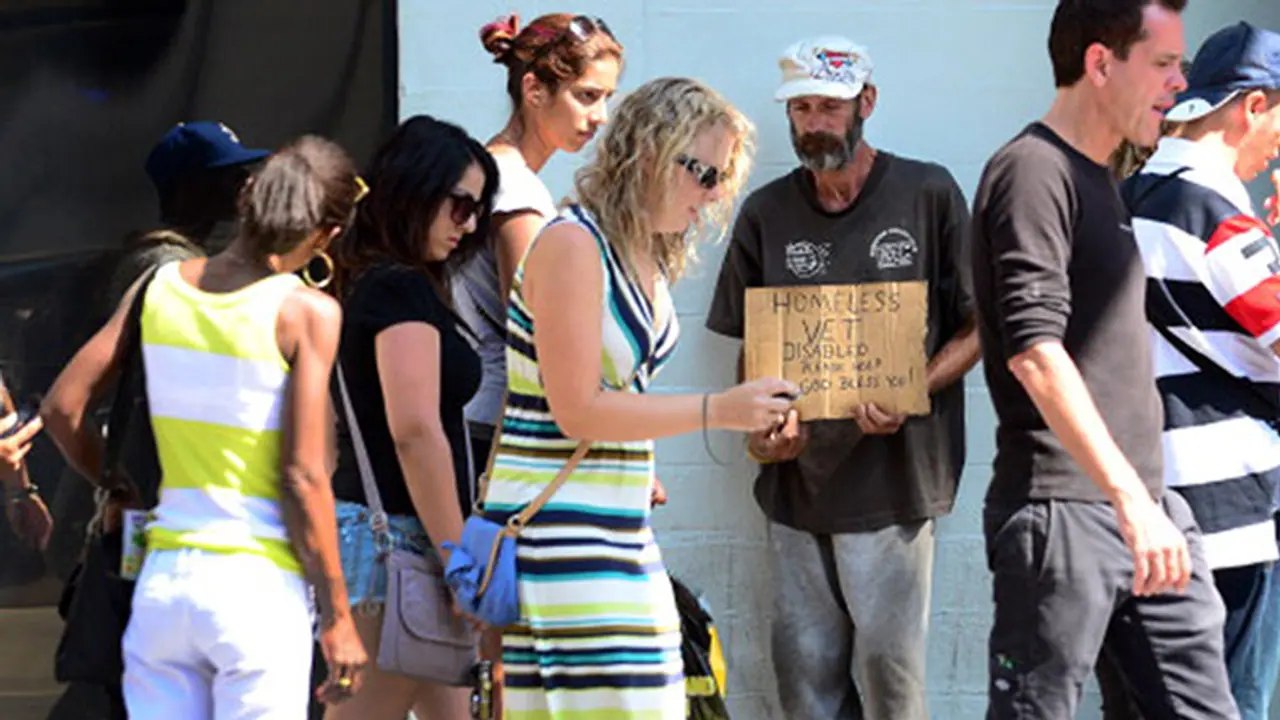Once in a while, I come across panhandlers on the street carrying placards with the words 'Homeless Veteran' written on it. Often they do not even hope for a passing stranger to drop a single penny, leave alone a dollar in their extended cans or hands. After all, trying to discern an authentic homeless veteran versus a bum on the streets is a thin-line.

Both look bereft, sometimes high on drugs or lost. However, the stark difference between the two is that the veteran has served his country well. They come back home only to feel lost in an environment that is not a war-zone. Then, through unfortunate circumstances, they get kicked out of their homes, battle Post Traumatic Syndrome (PTSD), and such other issues that make reconciliation to a normal life a difficult task.
USA Today reported that in the year 2014 itself, on an average twenty veterans took their lives daily. An abject situation for those who have served their country faithfully.
Bryant, 46, veteran, says, “It is a very realistic case of returning home to find oneself a total stranger. I, who have served my country as a Green Beret, one of the deadliest special operations force in the world, was scared to do grocery, to be out socialising with anyone and would not step out of my home for years. But, I could go out in an Iraq, Afghanistan etc., without batting an eyelid.”
He added that cases of homeless veterans were an unfortunate situation, usually because the pension given was not enough to support a man and his family, leave alone disabled veterans injured in the line of duty.
He said, “The Veterans Affairs (VA) here is a broken system. If a disabled veteran gets a job, his VA allowance is stopped immediately. They figure if he can work, he is not disabled. But several factors like a desire for a decent living, a divorce, alimony payments etc. that require extra money are not considered.”
Bryant, a 100 percent disabled veteran who gets a pension, VA and social security benefits totalling to a monthly four-figure income, is still scraping for extra money to make ends meet.
The Veterans Affairs assumes the money being disbursed is enough and will not budge an inch even when the needs of the veteran are dire, and even when they are homeless.
Incidentally, not all veterans get that much money either - only those who have served in war zones or disabled get monthly remuneration and even that on a strictly confirmed basis.
Although there are shelters for these homeless veterans, there are severe restrictions in such places. For example, pets are banned, so rather than give up the animals who are sometimes the veteran's only companion, they prefer to live on the streets with them.
Such issues make it seem like the US Government is either unable or unwilling to help its soldiers.
Such gaps in care are being filled, to a small extent, by veterans like Chris Stout (Army), Kevin Jamison (retired Marine Corps), Mark Solomon (Navy Reservist) and Brandon Mixon (Airborne). The four established an independent non-profit Veterans Community Project or VCP in Kansas City, Missouri.
Stout and Jamison had been actively helping homeless veterans over the years and had been brainstorming over this abject situation of their brothers. It was more than homelessness they were fighting - it was the right to live as human beings. They have already built one house and currently plan to build 49 more in Kansas City.
Kevin Jamison, Vice President VCP says, “We want to build homes and a community these vets call home. This will help rebuild their lives and further in adjusting to the society as well. We have plans of building entire community services here with professional healthcare, employment, counselling and giving back to the community.”
The building of these houses versus units in buildings was to help the veterans get back to normalcy and organizing their life as ordinary citizens with responsibilities - like shopping, cooking and wearing clothes to name a few.
Stout, President and Founder says, “We identified too many veterans suffering from PTSD and addictions, and these were not being treated or addressed in these traditional shelters. So as vets we decided something had to be done about it.”
VCP as a concept is now being seen as an idea that any other state that can emulate too, with the help of their communities.
